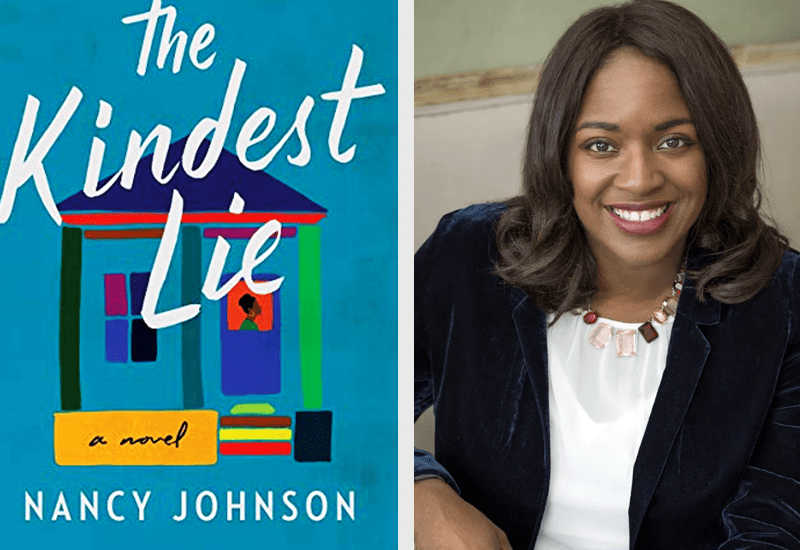
Nancy Johnson On How Race And Class Influenced Her Debut Novel ‘The Kindest Lie’

Nancy Johnson’s debut novel The Kindest Lie, officially released today, is an exploration of motherhood, race, and class. Featured on our most anticipated books of 2021, Johnson describes her first novel as “a story about the choices that we make in our lives, and how tethered we are to our past, and how much our past dictates who we are today.” In an exclusive interview with EW, the author explains the inspiration behind The Kindest Lie, and what she hopes readers take away from it.
Here is an excerpt of the story’s plot: “In Chicago, Ruth Tuttle, an Ivy-League educated Black engineer, is married to a kind and successful man. He’s eager to start a family, but Ruth is uncertain. She has never gotten over the baby she gave birth to—and was forced to leave behind—when she was a teenager. She had promised her family she’d never look back, but Ruth knows that to move forward, she must make peace with the past.
Returning home, Ruth discovers the Indiana factory town of her youth is plagued by unemployment, racism, and despair. As she begins digging into the past, she unexpectedly befriends Midnight, a young white boy who is also adrift and looking for connection. Just as Ruth is about to uncover a burning secret her family desperately wants to keep hidden, a traumatic incident strains the town’s already searing racial tensions, sending Ruth and Midnight on a collision course that could upend both their lives.”
The novel is set in 2008, right after Obama’s historic presidential win––an era that influenced Johnson to write the book. She told EW, “After the election of Barack Obama as President, I remember so many people saying that we were moving into this post-racial era and that was obviously a fallacy to me. While I felt that we were progressing and moving forward, I knew that the racial divide was still very deep.”
Johnson found 2008 to be an especially unique setting for her novel because of the Great Recession and the struggle of so many Americans during that time, which has striking parallels to our current times. “People were losing their jobs, so I just think this was a time of economic strain and scarcity. In those times, the divisions of race and class became more evident and pronounced.”
While the election of our first Black president certainly was a significant step forward, Johnson’s point of view is rooted in reality. “Racism didn’t cease to exist in America with the passage of the 1965 Civil Rights Act, or when we elected, and reelected, our first Black president. It’s not going to disappear,” she said. Johnson wanted to explore how our experiences are not only formed by our race but also by our class. “At the same time, you see the extra burden carried by Black folks who are poor, but also those who are upper-middle-class, and they’re coming against the same power structures, such as policing and the criminal justice system, so there’s nuance there.”
Johnson’s hope is that The Kindest Lie will spark candid discussions about race and class in America. “I think a novel like this can help us to develop empathy when we get to know people and experiences outside of our own, so that’s my greatest hope for this book,” she concluded. Read the full interview with EW’s Alamin Yohannes here.
Purchase a copy of The Kindest Lie at your local bookstore, or through Amazon.
